Interview: How MRS. DOUBTFIRE Star Rob McClure Is Throwing Audiences for a 'Loop'
Go inside of one of the show's most jaw-dropping numbers, "About Time" with its Tony-nominated star!
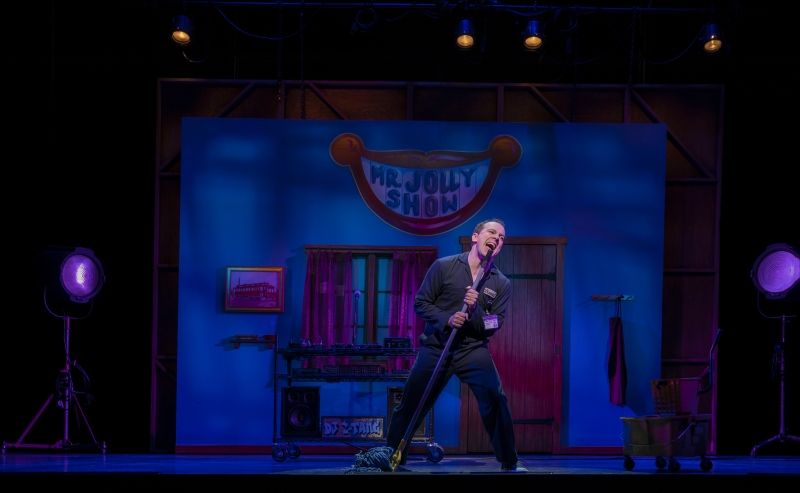
The new musical Mrs. Doubtfire has returned to Broadway bringing all the humor, heart, and tenderness of the 1991 Robin Williams comedy to the stage!
In the show, Tony Award-nominee Rob McClure portrays Daniel Hillard, a struggling, out-of-work actor, will do anything for his kids. After losing custody in a messy divorce, he creates the kindly alter ego of Scottish nanny Euphegenia Doubtfire in a desperate attempt to stay in their lives. As his new character takes on a life of its own, Mrs. Doubtfire teaches Daniel more than he bargained for about how to be a father.
The musical stages all of the film's most iconic moments, including the makeover montage, kitchen mishaps, and the hilarious impromptu visit from a court liason, but one moment in particular has audiences going crazy eight times a week.
In the film, after securing custodial work at a television studio, Daniel finds himself alone on a soundstage, and decides to make some improvisational magic with dinosaur figurines left behind by a children's show host. In classic Robin Williams' style, the moment is one of the highlights of the film as he improvises dino tunes featuring an array of impressions including Elvis and James Brown. Following his imaginative spectacle, Daniel finds himself face to face with a studio head who is impressed by his ingenuity and comedic genius.
The musical turns this concept on its head entirely, subverting audience expectations and creating a tour de force for star McClure as Daniel ditches the dinosaurs for a loop machine left unattended. The subsequent number, "About Time" unfolds thrillingly before the audience's eyes as Daniel takes control of the machine, two puppets, and flexes his freestyle skills, performing an educational rap all about the art of telling time. The number becomes more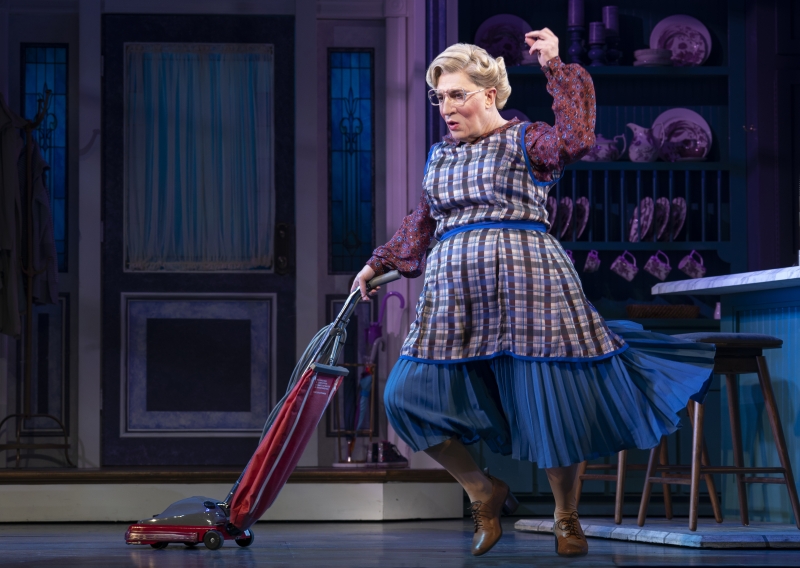 thrilling still when you find out that it is, in fact, entirely powered (and improvised!) by McClure himself eight times a week.
thrilling still when you find out that it is, in fact, entirely powered (and improvised!) by McClure himself eight times a week.
In BroadwayWorld's Showstoppers series, we're unpacking what goes into creating and performing some of Broadway's most ovation-worthy numbers. Below, go inside this Olympian bit of musicality, comedy, and vocal dexterity with the inimitable Rob McClure below!
Where was "About Time" born? Was this a number in the show already when you joined the development, or was it something that came about later on? How did the loop machine come into your life?
When we did the first reading of this version that the Kirkpatrick brothers and John Farrell had written, I think it was around May of 2019, what it said in the script was, "he [Daniel] improvises a prodigious comedic number with a loop machine." But it didn't say anything about what it was, it just said that there was a loop machine and that he uses it. And they said, "You know what, for the reading, I think we're just gonna say, 'and then he improvises with a loop machine.'"
Wayne Kirkpatrick, the composer, said, "I have a loop machine. I've been messing with it in my hotel room, if you want to try." And I was like, "Well, give it to me." We had about two days before the actual reading and I took it home and I started playing with it. It's a Boss RC505 unit. I've been a fan of the musical video games, whether it be Dance, Dance Revolution, or Parappa the Rappa, or Elite Beat Agents or any of those video games that are music-based. In a weird way, it feels like that. So, I took it home and I came up with the chorus that became the "Tick Tock" song with the loop station at home. By the time I came back in rehearsal, I was like, "I think I have enough here that I should do something for the reading." So, I sort of improvised 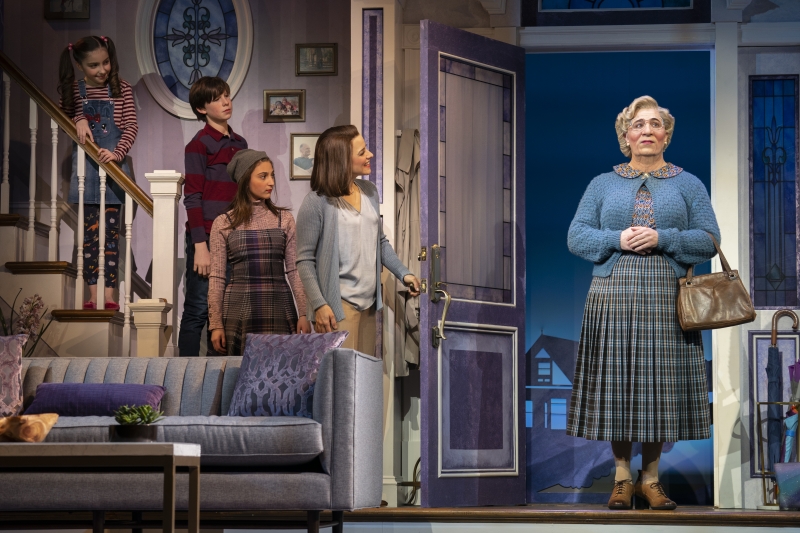 the version for the reading and it was pretty exciting.
the version for the reading and it was pretty exciting.
It's such an iconic moment in the film, among so many iconic moments from the film that you've had to adapt for this production.
And I think it does serve that moment. We all know that brilliant moment of Robin Williams improvising with the dinosaurs, but if we're doing a musical, that seems like a large enough plot point that if you're doing a musical, you should at least take a stab at musicalizing that moment. So, how do you improvise music? I think the loop machine was a really innovative way to show the character's singular musical mind.
There's so much going on in the piece it's incredible to watch you execute all of it simultaneously. How did you build out this performance and all these layers?
Any time I messed around with it, I realized that there are three components to executing it. One is wrapping my head around where I want to go and how to technically do it, in terms of how to get from point A to point B. The second part is just the actual technical button pushing of the unit, and then third is I'm puppeteering rat and mouse puppets on the same hands that I'm using to operate the machine. So, I have to try and keep those puppet characters alive while simultaneously using those hands to push the buttons. So [laughs] it's a lot to wrap my head around! I wanted to be fluent enough with the machine that it can be a little improvised and be a little different from night to night. That requires a real understanding how the machine works to be able to sort of mess around in real time in front of an audience. The writers wrote a couple of different verses that could go in between the building of the "Tick Tock" chorus about telling time. Then we picked and chose what worked because we didn't wanna overwrite it. If you overwrite it, it loses a bit of its spontaneity. So we focused far more on creating a hard structure for it.
The other thing about the moment is that two things are happening. Plot-wise, you have Janet Lundy the head of the television studio, observing his Daniel Hillard's improvisational prowess, but we also need to see him being the best father that he can be and that there is an educational value to his talents. There is a child-friendliness and a simplicity to his style of teaching that isn't just about him being a goober and an unhinged goofball, but a really good teacher, you know? So I think that that's where they sort of focused on any of the hard concepts that would have to be included in this improvisational moment.
Over the course of the three years we've been working on it now, we've found different moments and different styles of music that I can mess around in. We have rap, we have bits of reggae, we have bits of, like, an Elvis-style rock and roll that we can get out of the machine. There's all kinds of ways we can play and audiences get different versions depending on where my fingers take me each night. It's also fun for the audience to know that it's really happening, that I'm really doing it. There's not a note in there that is prerecorded.
That's so incredible to hear because when I saw the show I was trying to work it out. Because it seemed to be all you, but then there were moments where it felt way too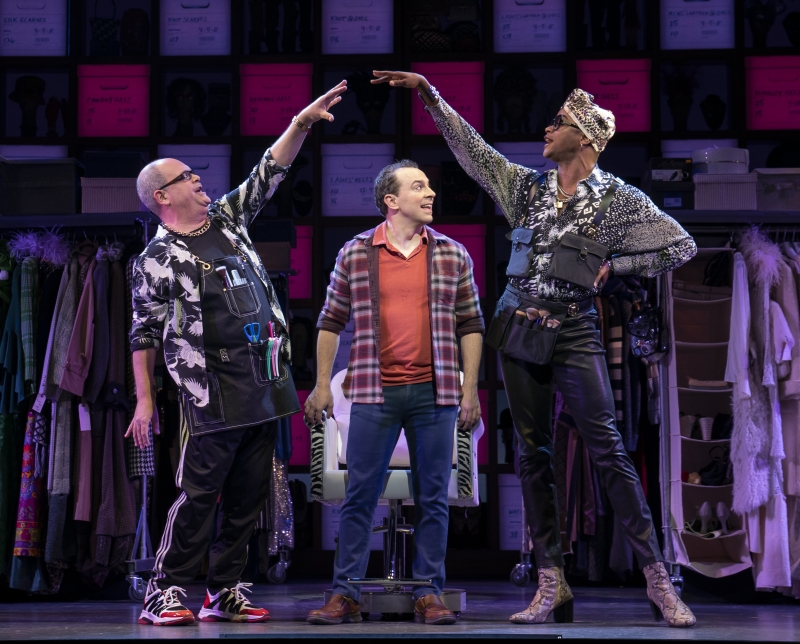 polished for it not to be a group effort of some kind. Have there been any mishaps so far?
polished for it not to be a group effort of some kind. Have there been any mishaps so far?
Oh, for sure. And I'll you what, it has actually been really thrilling because that's the moment when an audience who does think that this is too polished to be real, it's a moment where they go, "Oh, wait, he's really doing it." So the few times that things have gone wrong have actually been a cool opportunity for the audience to see that it's legit, that it's really happening. And the response at the end, when I'm able (hopefully, knock on wood) to find my way home with the machine, that pay off with the audience is really exciting because they see me work myself out of the bind if the machine is being temperamental.
Even our sound people [laughs] are frustrated with that moment because they can't control it. They don't have any control over the levels of that machine. They just have one output level, and other than that I'm mixing it all in real time from the machine. So it really is a singular moment in a weird way, because this is such a collaborative art form and every other moment of that show is a culmination of hundreds of people firing at all cylinders and being really brilliant. But that is one horrifying three minutes. It's just me and that machine. And what's really horrifying about it is that it has to succeed in one way, which is that when Janet Lundy watches me, at the end of it, she goes, "I want that guy to have a television show on my network." It has to be good enough, whatever it is, that a television executive would say, "Get that person their own show."
So what's your history with improv? This role obviously calls for a ton of it.
Here's the funny thing, I think back to six year old me playing Ninja Turtles and Ghostbusters on my lawn, and it's like, I've been improving as long as I can remember. [laughs] But in terms of formal training, I studied at the Paper Mill Playhouse summer conservatory, and that was sort of my first training in legit improv and acting. I've done a lot of improv comedy, I've taught a lot of improv, and a lot of it comes from admiring people like Robin Williams and Jim Carrey, these comedians who have completely removed their filter and are just live wires. There is a certain amount of bravery in unhinging yourself to that limit, you know? And I thank Jerry Zaks for 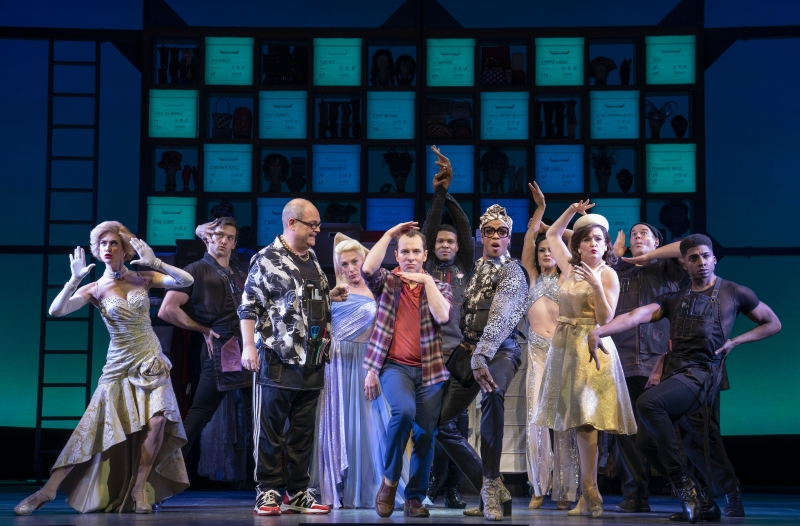 giving us the type of rehearsal room where I can do that, because sometimes you can lose track of the crafted moments of storytelling if you are too unhinged on stage. Rehearsal is the real place to take that lid off and run because then you can find the gold.
giving us the type of rehearsal room where I can do that, because sometimes you can lose track of the crafted moments of storytelling if you are too unhinged on stage. Rehearsal is the real place to take that lid off and run because then you can find the gold.
Another thing this role, and specifically this moment in the show, calls for is vocal dexterity and stamina. How do you maintain your voice in a role like this?
As long as I can remember, I've done impressions. In fact, I think the first performance I ever did was in my fourth grade talent show and I did impressions. So I've always done voices just out of, you know, being silly. The only training that I think is required is to figure out a way to do it eight times a week. If you are doing an impression or a voice that does vocal damage, you have to find a way to place that in a place that's replicable, and that's where vocal training comes in. It's really about the stamina and the ability to replicate it eight times a week. You really do have to train like an athlete in terms of thinking of sustainability.
And this is to say nothing of the physical demands of the role and the dramatic heft of the material. At it's heart this is a show about a broken family dealing with the trauma of divorce. How do you navigate that and what does it mean to you to tell this story?
That's the thing that makes it gratifying to go to work every day. There was an evening where I was singing a song in act two called, "Just Pretend," with my daughter on the steps of the courthouse, after I've lost custody. And she has a line where she says, "If your love for mom has ended, could your love for me end, too?" And my response is, "No, it could never end. It's different with your kids. You have to know that." And in my periphery, because I sing the song in profile, I could see the front row of the house left section of the orchestra and in the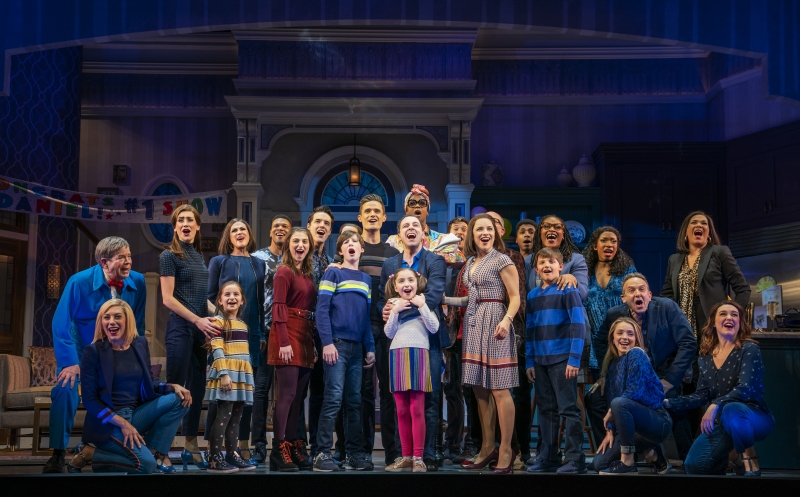 front row was a middle-aged guy with maybe a 10 year-old girl sitting next to him. I said, "It's different with your kids. Please tell me you know that." And I saw him reach over and grab her arm, and the two of them started to cry from there to the end of the show.
front row was a middle-aged guy with maybe a 10 year-old girl sitting next to him. I said, "It's different with your kids. Please tell me you know that." And I saw him reach over and grab her arm, and the two of them started to cry from there to the end of the show.
My first though was, "Oh my God, Rob, keep it together, you have too many words to say. If you start crying now, you'll never come back." So I had to keep it together, but it is those moments where you realize that for 50% of the children who come to see this, their families will be right in the thick of this subject matter. So them having a story that says, "It's okay, you can redefine family and family can look like anything as long as there's love." It is a message that is timelier than ever. The expansion and redefinition of family for a 2022 world is one that I think makes our story not only okay to tell now, but important to tell now.
Videos


